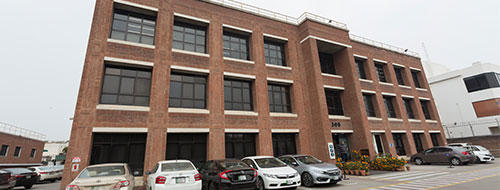Since decades Water has been a key focus of Nestlé’s sustainability efforts, especially for the operations across our value chain. Preserving water resources is a part of our legacy. We now have a unique opportunity to build on this heritage with the launch of new commitment called the Water Pledge which is water business specific.
Our Water Business pledges to lead the regeneration of the water cycle to create a positive water impact everywhere it operates by 2025.
With the new Water Pledge, we aim to capture more water than what our water business uses in its operations throughout the local watersheds. We aim to do this by taking collective action with local communities, farmers in our value chain and experts in water resource management.
What is water cycle regeneration and positive water impact?
Regeneration of water cycle involves many different methods of helping nature capture more water throughout individual watersheds. It is based on implementing locally relevant nature-based solutions whereas a positive water impact means that we will make more water available within the watershed than we use annually.
Even though our regeneration commitment is new, it builds on our existing water stewardship efforts under the umbrella of Caring for Water-Pakistan (C4W-Pakistan) initiative launched in 2017. We are a lighthouse market in terms of C4W initiative and have all our sites certified for the Alliance for Water Stewardship (AWS) Standard.

The C4W-Pakistan initiative uses a three-pronged approach targeting Agriculture, Factories and Communities. Here are some of our most celebrated projects under each one of the pillars:
- Considering the massive water consumption (more than 90%) in agriculture sector in Pakistan and the accompanied wastage (as high as 50%), we go beyond our factory gates using the collaborative approach with multiple partners. We have introduced lighthouses across many parts of Punjab and Islamabad to use modern irrigation methods i.e., drip irrigation in place of conventional flooding. Drip Irrigation is estimated to save 40%-60% water in comparison to conventional flood irrigation.

- Similarly, we have Soil Moisture Sensor Project, that was developed by our team to read the moisture level of the soil and send regular data updates to a cloud from where the farmer receives information about which areas they should irrigate and how much. This saves about 12%-17% water using precision technology. Later, in collaboration with Lahore University of Management Sciences (LUMS) and an Italian organization called Waziup, a software has been developed that enables the farmers and researchers to see the soil moisture level remotely on their computer screens.

- Similarly, Nestlé Pakistan has been the first organization in Pakistan and first market in Nestlé world for having achieved the Alliance for Water Stewardship (AWS) certificate for all its sites in 2020. Our new Water Pledge is a milestone on this journey that we officially started in 2017 with our C4W-Pakistan initiative. It is built on a strong foundation and a long-term ambition to transform approaches to water management where we operate.
- Furthermore, we have developed 6 Safe and Clean Drinking Water Facilities around our operational areas. These facilities collectively save around 177 tons of water every day.
The ‘Nestlé Water Pledge’ is an opportunity for Nestlé to reconfirm its position on water stewardship and for C4W-Pakistan, to lay out its vision and set an ambition. This will also help us play our part in realizing the United Nations’ Sustainable Development Goal (SDG)-6 on water and sanitation across our value chain.
In Commitment With



